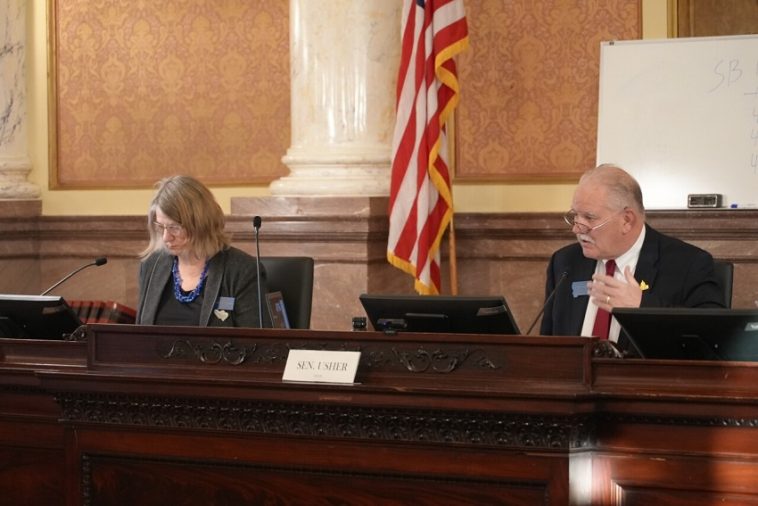Missoula, MT – Montana Republican lawmakers are making significant strides in their push to overhaul the state’s judiciary, with several bills aimed at altering the structure and operations of the courts making their way through the legislative process. Governor Greg Gianforte has voiced strong support for these reforms, endorsing a proposal to introduce partisan judicial elections, which has sparked intense debate among lawmakers.
At the heart of the legislative push is House Bill 39, introduced by Rep. Tom Millett, R-Marion. The bill seeks to repeal a longstanding state law that prohibits political parties from directly contributing money to judicial candidates. On Tuesday, the Montana House voted 57-43 in favor of the bill, with nearly all Republicans supporting it and Democrats opposing it. Supporters argue that this change would increase transparency in judicial races, which they say are already influenced by outside spending and partisanship.
“The reality is that politics has always played a role in the judiciary, whether it is the selection process or in the legal outcomes that shape society,” Millett stated, defending the bill’s provisions. He also pointed out that the current limits on party donations—$84,150 for Supreme Court candidates and $2,250 for district court candidates—are unlikely to make a significant difference compared to the large sums of money already flowing from outside groups.
However, opponents, including Rep. Peter Strand, D-Bozeman, warned that such reforms would compromise the impartiality of Montana’s judges. Strand emphasized that judges are trained to remain objective and separate personal and partisan views from their work. “Our job here is to do what we can to help them to get that job done right,” Strand said.
In addition to HB 39, several other bills from the Republican-led Senate Select Committee on Judicial Oversight and Reform are advancing through the Legislature. These include measures that would change the way lawsuits challenging ballot measures are handled, require random selection of substitute judges, and restrict the scope of judicial injunctions. Another key bill, Senate Bill 44, seeks to clarify the powers of each branch of government in Montana, aiming to further delineate the roles of the legislative, executive, and judicial branches.
Senator Daniel Emrich, R-Great Falls, the sponsor of several of these bills, argued that Senate Bill 44 would provide clarity on the separation of powers. “Whenever one branch exercises their power, that branch’s power does not extend beyond those constitutional fences,” he said during a recent hearing. Supporters of the bill argue that it will help resolve the ongoing tensions between the branches, particularly in cases where the judiciary has blocked legislative actions.
Opponents of the bill, including representatives from the Montana State Bar, argue that the legislation undermines the role of the judiciary in interpreting the Constitution. Bruce Spencer, a representative of the Bar, warned that the bill could erode the separation of powers that is vital to maintaining an independent judiciary. “The fact is that the role of interpreting the Constitution and defining what it says is strictly limited to the courts,” Spencer argued.
While these bills are progressing, the controversy surrounding them highlights the deepening divide between Montana’s Republican-led Legislature and Democrats. Democratic lawmakers have criticized the formation of the Senate Select Committee on Judicial Oversight and Reform, accusing Republicans of using it to launch a politically motivated attack on the judiciary. Notably, Democrats chose not to participate in the committee’s work, citing concerns about its constitutionality.
As the 2025 session moves forward, more bills from the select committee are expected to be debated, with the future of judicial reform in Montana continuing to be a contentious issue.



